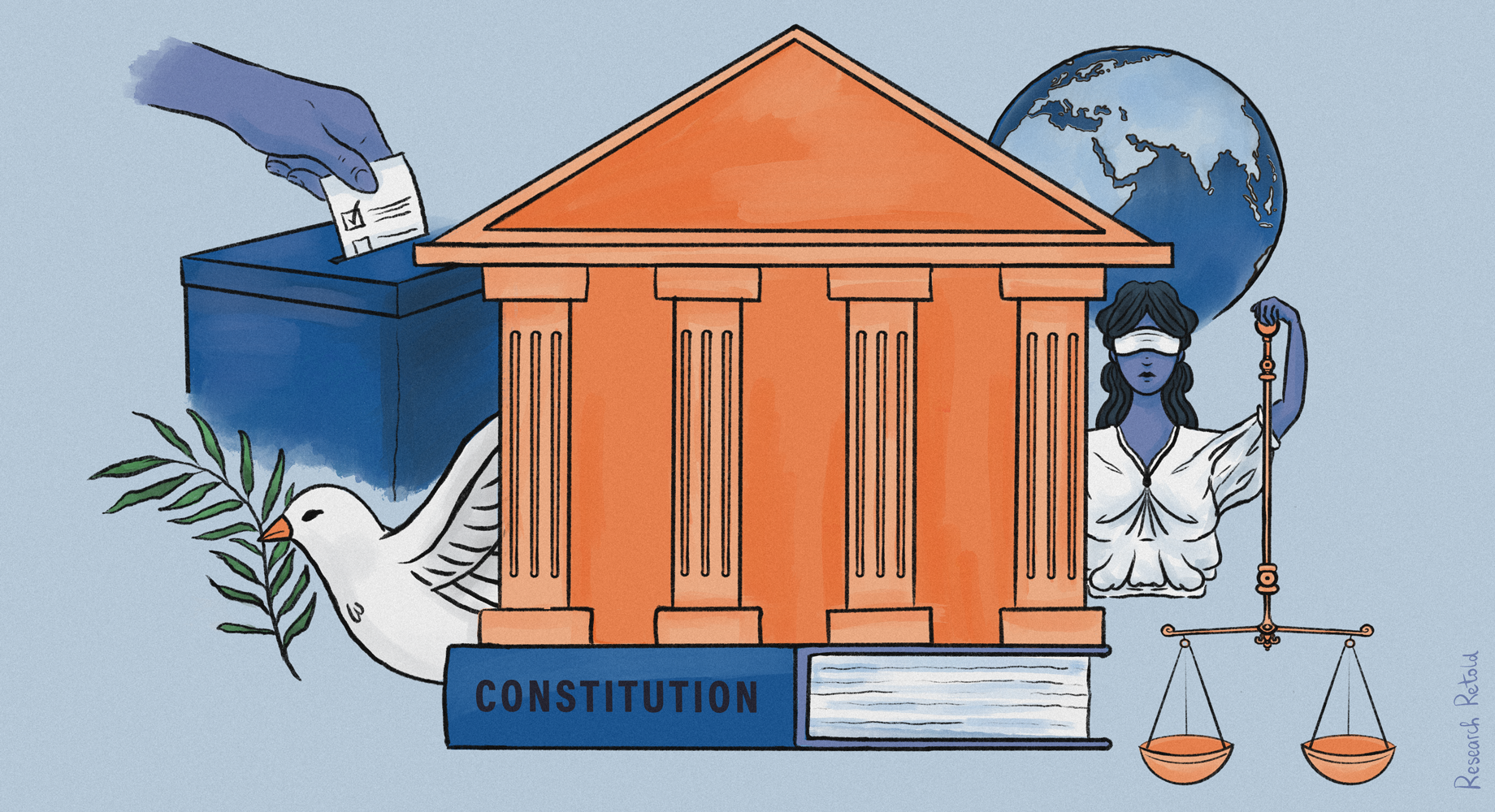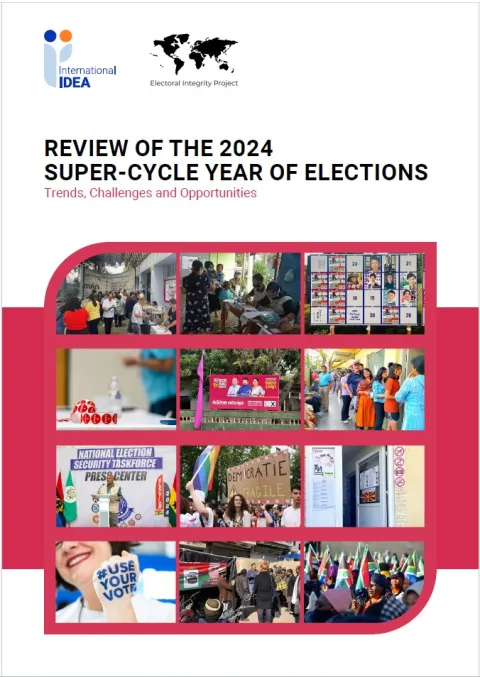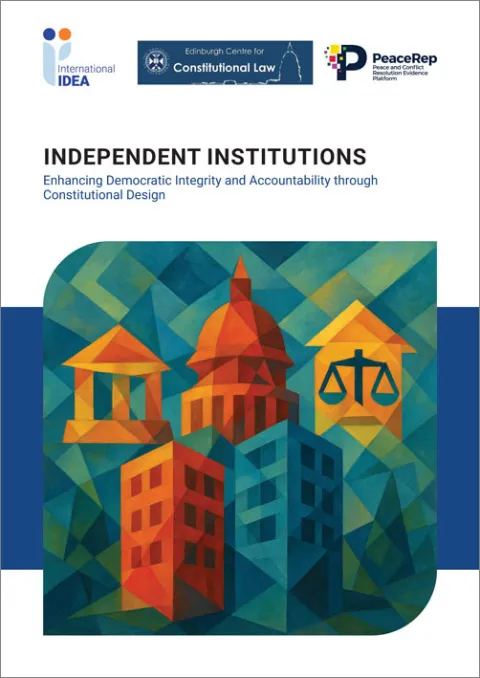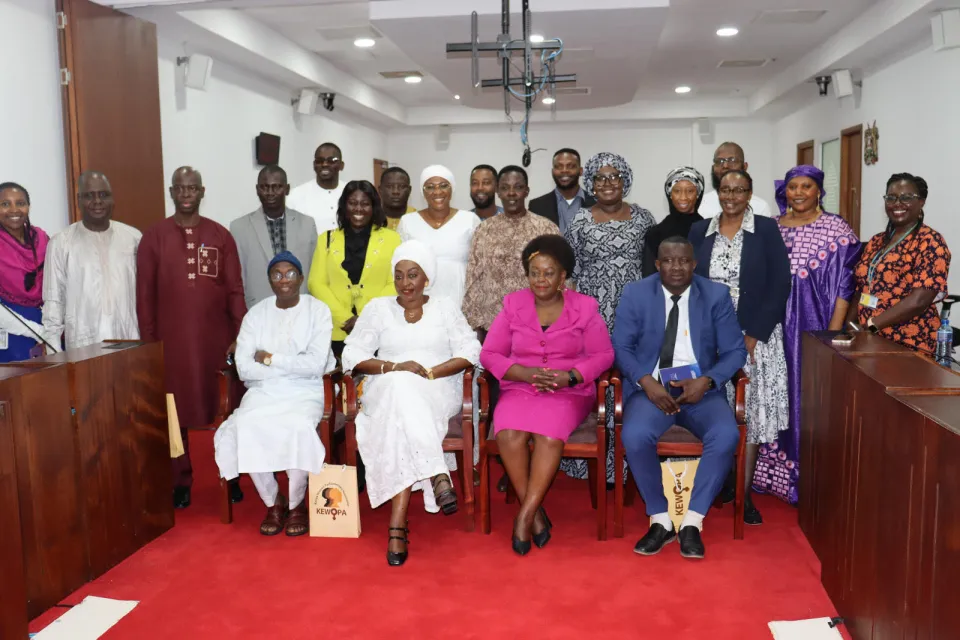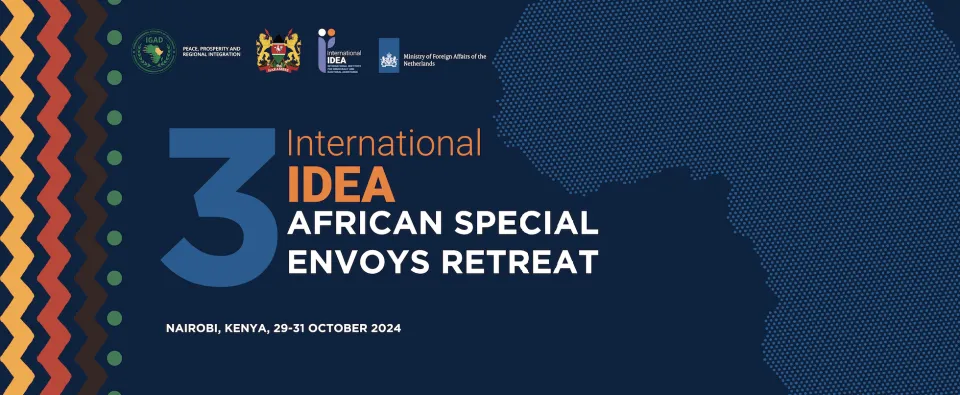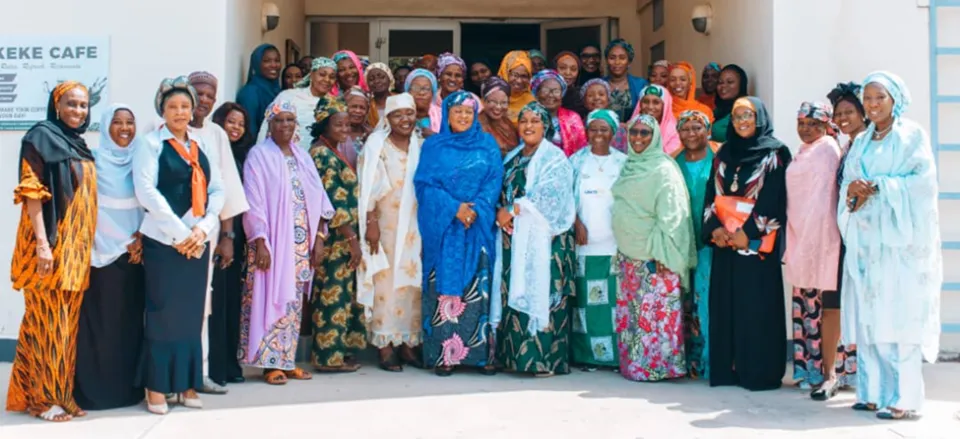Constitutional Approaches to Decentralization: Elements, Challenges and Implications
Whether decentralization, and particularly devolution and federalism, is advantageous or disadvantageous for women is a long-debated issue. The effectiveness of decentralization in promoting gender equality depends on how the system is designed, the quality of implementation planning and the adequacy of resources.
Decentralization processes, nevertheless, are particularly fertile ground for enhanced and systematic women’s engagement, with numerous avenues for mobilization and advocacy throughout the long period of interpretation, implementation and enforcement, which can be harnessed by women to shape what decentralization will look like in practical terms.
The Fourth Women Constitution-Makers’ Dialogue focused on decentralization from a technical and empirical perspective to support women constitution-makers engaged in constitution-building processes and constitutional implementation through knowledge transfer and comparative experience sharing.
Details
Staff authors
Contents
Executive summary
Key findings
1. Introduction
2. Conceptualizing decentralization
3. Negotiating and designing decentralization
4. Implementing decentralization and measuring performance
5. Considerations relating to women, ethnic minorities and Indigenous peoples
6. Concluding observations
References
Give us feedback
Do you have a question or feedback about this publication? Leave us your feedback, and we’ll get back to you
Send feedbackConstitutional Approaches to Decentralization: Elements, Challenges and Implications
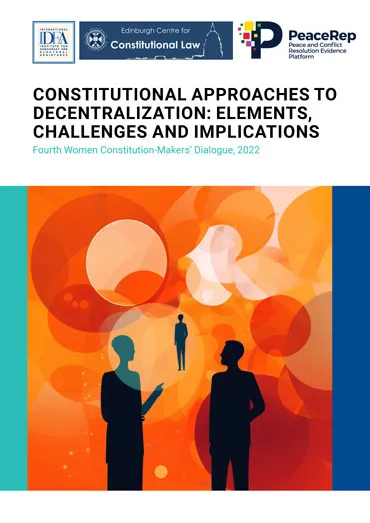
| Total views | 3717 |
|---|---|
| Downloads | 130 |
| Rating |
Staff authors
Give us feedback
Do you have a question or feedback about this publication? Leave us your feedback, and we’ll get back to you
Send feedback